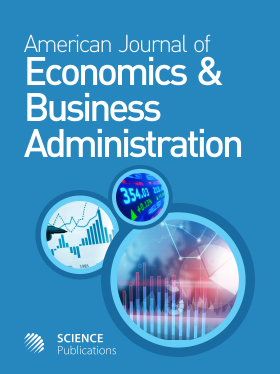Non-business E-Commerce in Malaysia: An Investigation of Key Adoption
- 1 University Malaysia Sabah, Malaysia
- 2 University Utara Malaysia, Malaysia
Abstract
Problem statement: Non-business EC is a relatively new research niche in the general e-commerce stream. Application of e-commerce by profit oriented organization already become bread and butter but still limited applied in non-business sectors such as academic institutions (as in the present study), non-profit organizations, religious organizations and government agencies. Nowadays e-commerce becomes crucially essential in reducing their expenses and improving their operations. Therefore, application of this new innovation should enhance to no non-business sectors to be livelier. Understanding the key factors of facilitating and adopting the e-commerce in non-business are still need to enrich in particularly within Malaysian context. A field survey was conducted to determine key factors that facilitate the adoption of non-business EC in Malaysian Universities. Approach: One main focus of IT implementation research has been to determine why people accept or reject new technology. The current research will explore why Non-business institutions will accept or reject e-commerce. Since e-commerce adoption decision is a strategic one, a comprehensive list of potential facilitators and non-facilitators for the strategic use of information technology was derived from past research. Thus factors used as the basis for collecting data from 65 schools, centers and units from 5 public universities in Kota Kinabalu and Kuala Lumpur. These data were factor-analyzed to determine the key underlying dimensions of facilitators. On the basis of the resulting 5 dimensions namely, relative advantage, network orientation, information efficiency, innovativeness and competitiveness, regression analysis was done to determine the impact of the 5 dimensions on adoption. Results: They suggest that relative advantage, network orientation and information efficiency are the most important facilitators to the used of e-commerce in non-business sectors. Inhibitors were not estimated eventually, as there were no non-users among the respondents. Conclusion: The results implies the non-business sectors should look into advantages, network orientation and information efficiency as a strategic based for implementing e-commerce in more effective manner to achieve their goals.
DOI: https://doi.org/10.3844/ajebasp.2011.177.185

- 7,496 Views
- 4,413 Downloads
- 0 Citations
Download
Keywords
- Potential facilitators
- not-for profit organizations
- e-commerce adoption
- e-brochure adoption
- regression analysis
- practitioner literature
- Value Added Networks (VANS)
- potential customers
